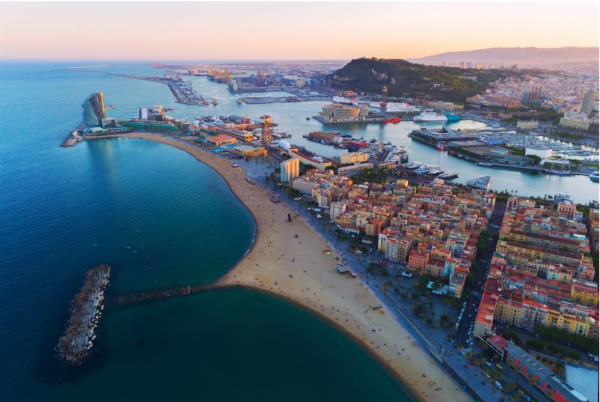Heroes in the field
A port-anchored renewable hydrogen economy
An international consortium of more than 20 companies including BayWa r.e., Redexis, Kopala International and Resilient Group have launched a major port-anchored effort to decarbonise the heavy-duty mobility as well as industrial emissions in the greater Barcelona region and beyond with renewable hydrogen.

The Hydrogenizing BCN Initiative – the fruit of a close public-private cooperation launched in 2020 – aims to build a hydrogen economy from the Barcelona port & metropolitan area. The initiative´s first phase ambition is to develop a full-scale value chain consisting of 20 megawatts of hydrogen production capacity, as well as three to four Hydrogen Refueling Stations (HRS), and to put 300 heavy-duty hydrogen vehicles into service.
Jeffrey Dost comments that the Hydrogenizing BCN proposal is being very well received. Four different projects making up 40% of offtake have already been conditionally secured in this first phase and the consortium is confident that the full offtake will be secured by the end of the first phase.
The projects, in the design and engineering phase, include connecting a 3-megawatt electrolyser and HRS to a large roof-based photovoltaic (PV) plant. PV power supply information has been provided by BayWa r.e. and was crucial to the initial system design. The renewable hydrogen will be supplied on site to Fuel Cell Electric Vehicle (FCEV) trucks and vans.
Hydrogenizing BCN also foresees the construction of a five-megawatt renewable hydrogen production hub located outside of Barcelona. This hydrogen will be used in mobility, shipping, and industrial applications.
It is expected that the different projects will be operational by 2023.
Depending on developments, a next step will be to reach a 120MW production capacity of renewable hydrogen.
Overall, these projects should reduce CO2 emissions from trucks alone by 2,000 tonnes per year, increasing up to 24,000 tonnes by 2026/27. They will require engineers and skilled technicians thereby opening the projects up to an important recruitment phase as well.
A sustainable and structural economic transition from carbon fuels to renewable hydrogen can only be achieved if we create a well-functioning market model. The viability of renewable hydrogen-based business models is at the heart of the initiative that aims to create more sustainable opportunities for businesses and jobs.
Hydrogenizing BCN partners are working to deliver robust and replicable project typologies, to kick-start and accelerate the use of renewable hydrogen in targeted market segments. As Jeffrey Dost, CEO of Kopala International, creator and promotor of the Hydrogenizing BCN Initiative, confirms: “If we want the world to become sustainable and the renewable hydrogen economy a reality, we must include companies and citizens in the process by creating businesses and jobs for them”.
Investments for first phase production and supply infrastructure are estimated to be around €28 million. For the FCEV to be incorporated a specific financing model will be applied. Hydrogenizing BCN expects that by 2030 the renewable hydrogen powered economy will have gained sufficient scale to become self-sustaining and competitive on a non-subsidised level playing field basis.
Based on an existing demand from the consortium partners, Hydrogenizing BCN is also actively working with other Spanish regions to develop a Mediterranean hydrogen corridor. This corridor will allow the logistics companies to operate FCEV on long haul routes and will also create significant regional spill over effects allowing the regional hydrogen economy to develop around the corridor HRS hubs.
Interconnecting these hydrogen hubs will constitute the final goal, setting the basis for the first pan European hydrogen corridors to scale-up the use of renewable hydrogen in the mobility and industrial sectors.
Barcelona is well positioned to become a major centre for new energy which will attract substantial investments and provide opportunities for the work force.
Marc Rechter, CEO of the Resilient Group, co-developer of Hydrogenizing Barcelona: “Renewable Hydrogen is an essential component of the energy transition, and this initiative will help demonstrate and scale up the new business models needed to develop the hydrogen economy of tomorrow”.
Image : ©Kopala International


